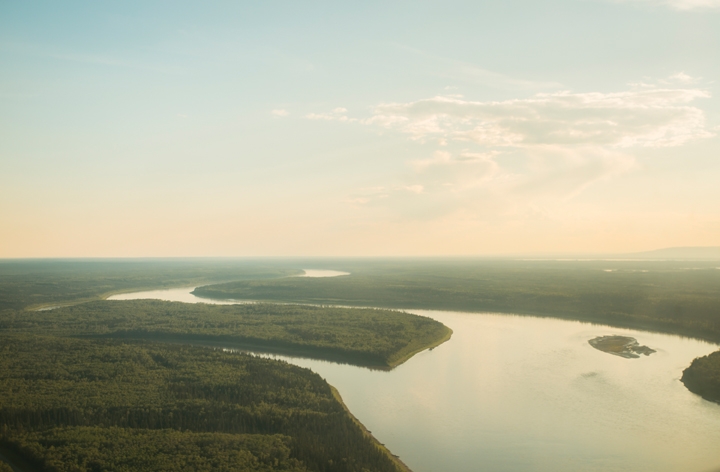
Multi-Stakeholder Partnership Reaps Information Rewards – the Mackenzie DataStream Project
Canada’s far North is seeing increased attention and activity, with a variety of initiatives to improve life in the North meeting varied levels of success.
One of the organizations which has truly built capacity is The Gordon Foundation, and one of the keys to its success in the North is direct involvement with northerners, many of them First Nations or Inuit.
A prime philosophy at the Foundation is the belief that northerners themselves should be the primary voices developing policies for the North. The Gordon Foundation provides support to share northern voices, and works to amplify those voices in ways that are reflected in improved policies.
This Canadian philanthropic institution celebrated its 50th anniversary in 2015. Its northern focus came about 25 years ago with the second generation, Walter and Elizabeth Gordon’s daughter, Jane Glassco, who noted that northern issues needed northern solutions.
One example of The Gordon Foundation’s commitment to northern solutions for northerners is Mackenzie DataStream, an online platform for sharing information about freshwater. Mackenzie DataStream is made for and available to the public and to decision-makers. It lets anyone access and download the full water quality datasets which are collected by 21 communities, all of which belong to the Northwest Territories’ Community-Based Monitoring program. A successful pilot project last year led to this year’s official launch in November in Fort Smith, NWT, and in Ottawa, where an event will be hosted by Jonathan Wilkinson, Parliamentary Secretary for the Minister of Environment and Climate Change.
Future phases of Mackenzie DataStream will incorporate datasets collected by additional groups which are also located within the Mackenzie River Basin.
“It’s online open access and open source,” says Carolyn DuBois, program manager for water at The Gordon Foundation. “Data is collected by communities throughout the Northwest Territories, from Fort Smith in the south to the Arctic Ocean.”
The impetus came from the NWT government, which spearheaded what DuBois describes as “comprehensive water strategy with unmatched community engagement.” Communities in the vast Mackenzie Basin, one of North America’s greatest watersheds, wanted an active role in water management.
Because all the communities are collecting comparable data the resulting dataset is “really solid” and of good use. Residents monitor, among other things, concentrations of dissolved metals, turbidity, chlorophyll-a, hydrocarbons and water temperature, then make the information available, through Mackenzie DataStream, to communities, governments, and regulatory agencies, to be considered in water management decisions.
“Mackenzie DataStream provides residents with timely and easy access to information on water quality in the Mackenzie River Basin and the quality of freshwater near their communities,” says Erin Kelly, Acting Deputy Minister for Environment and Natural Resources at the Government of NWT. “Access to these results has been identified by our partners, including Indigenous Governments, non-government organizations, regulatory agencies, academia and others, as important for decision-making at multiple scales. This includes decisions made at individual, community, regional, territorial and transboundary scales.”
Because the Mackenzie River runs north, what happens south affects communities along its length. It is expected to be extended to other jurisdictions in the Basin including Fort Nelson in northeastern B.C.
“We have invested in water monitoring and see tremendous value in sharing it on this open access platform”, says Chief Liz Logan of the Fort Nelson First Nation. “Mackenzie DataStream will allow this data to be used in our community as well as by our neighbours downstream in Yukon, Alberta and the Northwest Territories”.
Fort Nelson First Nation’s involvement in Mackenzie DataStream is being made possible by the Canadian Internet Registration Authority (CIRA)’s Community Investment Program.
“It supports our community-based water monitoring program which helps NWT communities to address questions they have about water quality, quantity and aquatic ecosystem health,” says Kelly. “It is another tool … to promote knowledge sharing and support the building of partnerships and evidence-based decision-making throughout the Mackenzie River Basin.”
Mackenzie DataStream was developed by Alberta-based Tesera Systems. The full list of almost 50 water partners can be found at http://www.nwtwaterstewardship.ca/partneragencies. For more information, visit www.mackenziedatastream.ca









